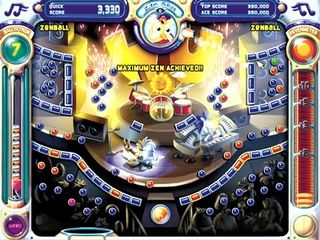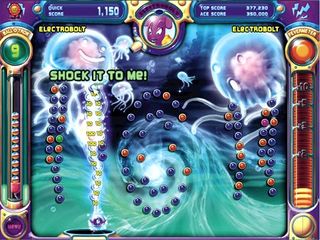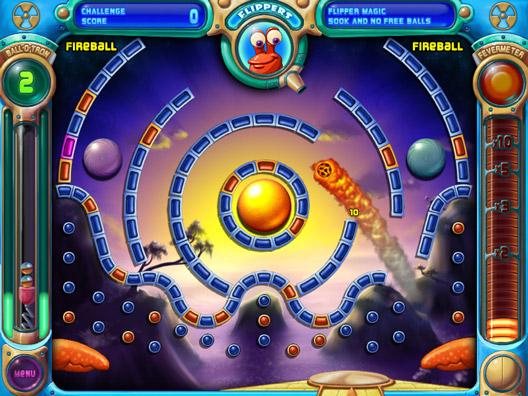12DOVE Verdict
Pros
- +
Addictive and joyous
- +
New medals
- +
Sounds beautiful
Cons
- -
More of the same
- -
No online multiplayer
- -
Possibly too much story
Why you can trust 12DOVE
For puzzlers, it’s nepotism or bust. The genre incumbents are unyielding colossi, and you have to be the offspring of Zuma, the cousin of Iggle Pop or to have made out with BookWorm before a crowd of peers begins to consider parading you about on their shoulders. Peggle Nights has such rich blue blood coursing through its veins, being the sequel to 2007’s seminal Peggle. However, this isn’t the bold, radical re-invention of Peggle we’d been hoping for, the metaphorical metempsychosis of Bjorn the Unicorn to some higher plane of Peggling.Peggle, it would seem, breeds only more Peggle.

Peggle Nights is an accomplished revamp of the previous game, treading the same peg-strewn ground, but taking well-known characters such as Renfield (the pumpkin) and giving us insight to their secret, aspirational dream worlds. Some are fanciful, such as Bjorn’s deeply held desires to become a superhero. Others are somewhat more emotionally engaging. Tula, the soil bound sunflower, dreams simply of mobility, her dream-legs allowing her to travel the world across five levels. Her saga ends with a languid acceptance of her condition. “That was a fun dream,” she sighs, “but now it’s time to go back to the soil.” Few games approach such subject matter, and fewer still with such gravitas.
Sadly, Peggle Nights posits scant innovation. Pegs are sculpted more closely around background artwork, and the art itself threads narrative through the progression of levels. The opening classical strains have been replaced with Debussy’s evocative Clair de Lune now easing the player into what can only be termed the “action”. Meanwhile, the quintessential level-ending epiphany of Beethoven’s Ode to Joy nails home the gameplay’s damning similitude.

Would we have been happier with an isotopic excursion? One in which pegs were swapped for neon ducks and points were metered in altogether new and ever more unpredictable fashions? It’s unthinkable. With Peggle Nights PopCap has made good on a promise, and the familiarity serves the game well. As ever, David Hilbert’s and Wilhelm Ackermann’s classic text, Principals of Theoretical Logic, is essential reading if you plan on nailing Ultra Extreme Fever on Lord Cinderbottom’s closing levels.
Oct 8, 2008
More info
| Genre | Puzzle |
| Description | Aside from some new features and characters, this doesn't add too much to the crazy addictiveness of the Peggle series, which makes it only pretty great instead of awesome. |
| Platform | "PC" |
| US censor rating | "Everyone" |
| UK censor rating | "" |
| Release date | 1 January 1970 (US), 1 January 1970 (UK) |
Steve Hogarty is a London-based freelance journalist covering games and technology. His bylines have appeared in publications including GamesRadar, The Independent, Yahoo, VICE, Eurogamer, and more. He is also the co-host of the pocast, Regular Features.

GameSir Cyclone 2 review: “The checklist this brand has built a reputation on”

Assassin's Creed Shadows director says the dreaded yellow paint was only added because "players were really struggling in playtests"

Following "mistaken" DMCA from D&D publisher Wizards of the Coast, Stardew Valley player behind Larian-approved Baldur's Gate 3 mod assures work will "resume as scheduled"










